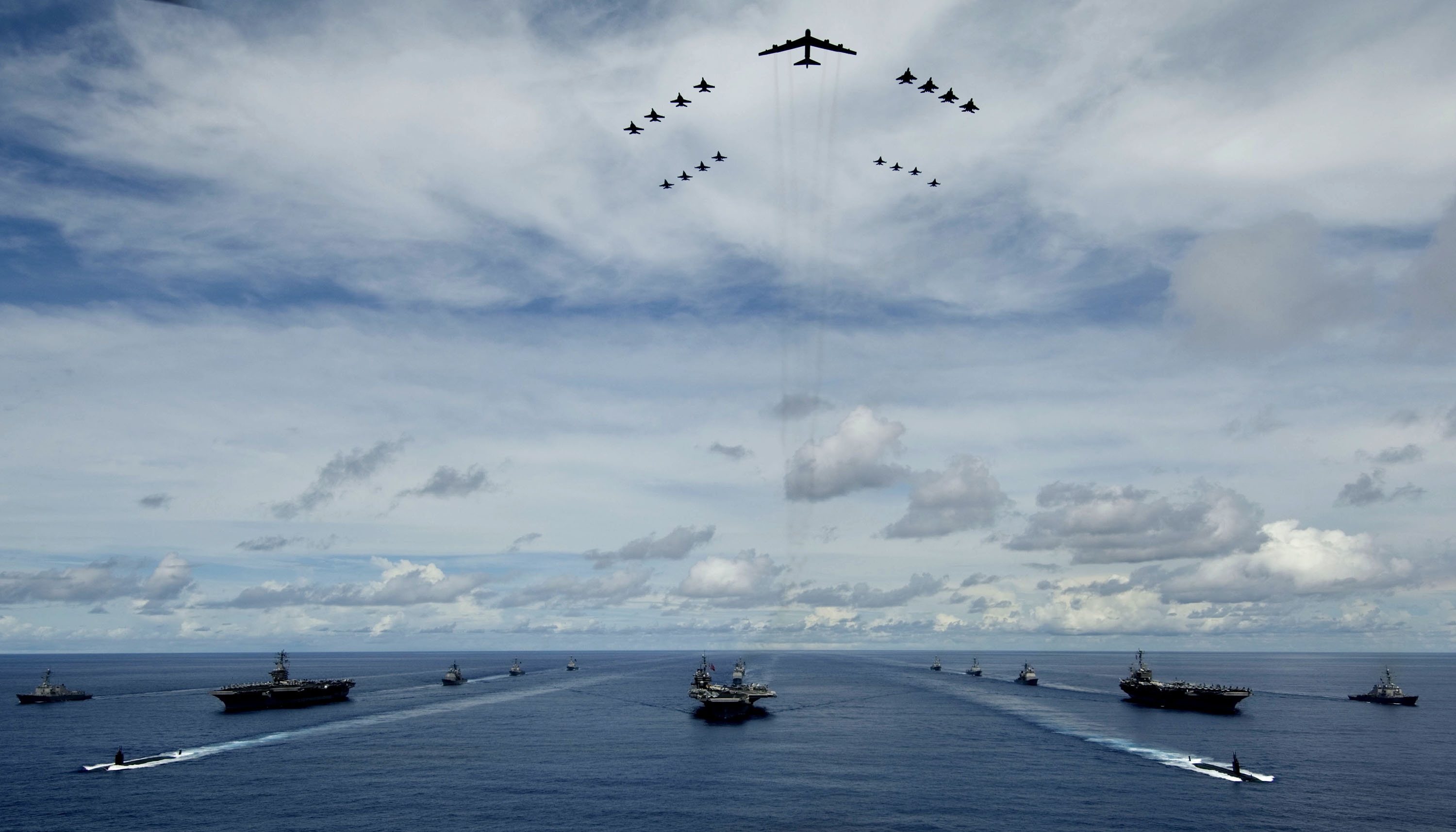By Mass Communication Specialist 3rd Class Dustin Knight,
Defense Media Activity
NATIONAL HARBOR, Md. (NNS) -- Leaders from the Navy, Marine
Corps and Coast Guard held a roundtable discussion about "A Cooperative
Strategy for 21st Century Seapower" at the 2015 Sea-Air-Space Exposition,
April 13.
Rear Adm. Kevin M. Donegan, acting deputy chief of naval
operations, Lt. Gen. Ronald L. Bailey, deputy commandant of the Marines, and
Coast Guard Vice Adm. Charles D. Michel, deputy commandant for operations, held
the discussion. They explained revisions made to the original 2007 document
focused on building on the United States' relationships with allies and
partners, preventing wars, and providing our nation's leaders with options in
times of emergency.
"There has been some discussion on why we have revised
the strategy," said Donegan. "The challenges that we faced in 2007
have evolved since we wrote the last strategy. When we were in 2007 looking
forward, as with always when you look to the future, you get some things right
and some other things happen in a different way."
Donegan went on to discuss the mission of the Navy, Marine
Corps and Coast Guard.
"Our emphasis is being where it matters when it
matters; our emphasis is forward presence," Donegan said. "We are
forward to do something, to engage with our partners and allies and build
trust. We are forward to deter potential aggression. We're there to respond to
crisis when need be and, if necessary, fight and win a war with joint forces.
That fundamental piece of being where it matters when it matters has not
changed and was foundational in our previous strategy."
Naval forces operate forward in support of trade that allows
for economic growth. Ninety percent of trade moves across the world's oceans.
In addition, 70 percent of the world's population lives near a coastline and
most maritime professions such as fishing, commercial shipping and oil and gas
extractions take place within 200 miles of a coastline.
"We think this strategy is a strategy that the American
people expect of our Navy," said Donegan. "They're going to continue
to rely on the sea services to respond to the complex changes in the world.
Most importantly they expect us to be the services that are the insurance
policy that guarantees our way of life in the United States."









No comments:
Post a Comment